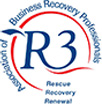A Director’s loan account is exactly that, a loan provided by a Company to its directors. It is not as straightforward as one might think and is one of the corporate world’s trickiest concepts to understand.
A loan account could be described, in a simple manner, as an account that controls and records the flow of money between you and your Company outside of the usual withdrawals that you take through the payroll and dividends.
Withdrawing Money from a Company
Withdrawing money from a Company isn’t like it is as a sole trader where removing money from a business is relatively straightforward. The withdrawal of money from a Company is complex as the directors and the Company are two separate legal entities and as such there are numerous tax implications to consider.
What is Included in a Director’s Loan Account?
If you don’t take any additional monies from the Company other than your dividends or salary, then your loan account will stand at zero, unless you as an individual have invested money into the Company.
It might not be as simple as investing cash into the business. You might have purchased assets for the Company or paid for everyday items such as travel and subsistence. If you do not claim these items back, then you will have a director’s loan account. Included in this would be if the Company was suffering from cash flow problems and you decided, in attempting to help the Company, to take a salary sacrifice. This too would contribute to a director’s loan account.
If you have loaned your Company money, you can, if the business is viable and solvent, take back the monies at any time. However, if the Company is insolvent, or becomes insolvent because of the monies you repay to yourself, there are very strict rules and regulations that could come into force should your Company enter into a formal insolvency procedure.
Do I have to pay tax when I repay my director’s loan account?
If you are repaying a loan account owed to you the money that you take is not subject to tax. Tax will only become a relevant matter if you take more money out of the Company that what you are owed.
Can I take a loan from the Company and then clear it with dividends?
Many directors do take loans from their companies throughout the year and then repay that loan with the processing of a dividend to cover the amounts withdrawn. This is perfectly fine to do, but specialist tax advice should be sought to ensure that you are not accruing unpaid personal taxes. You do need to be aware that should the Company enter into an insolvency procedure and your loan account is overdrawn, then the processing of a dividend after the insolvency event will not clear your loan account. It will need to be repaid to the Company.
Do I need to tell anyone about my director’s loan account?
If your director’s loan account is overdrawn by more than £10,000 then it will be classed as a benefit in kind. This is because you are receiving a loan from the Company and it is unlikely that you are paying any interest for that loan. Any such sum must be declared on your personal tax return. HM Revenue & Customs might ask you to pay income tax on the loan that you have received. If the Company loans you £10,000 or more, then you will need the approval of all of the shareholders.
Do I need to repay an overdrawn director’s loan account to a liquidator?
If your Company enters into a formal insolvency procedure, most commonly liquidation, and your loan account is overdrawn, then this will be an asset of the Company and your Company’s creditors will expect it to be repaid.
Any duly appointed Liquidator will discuss with you, your personal financial affairs to determine whether you are in a position to repay any sums that are due. Often in such situations, when a Company fails, invariably Directors will also be suffering from financial pressure and will more than likely not be in a position to repay the sums due in full. It is possible, if the circumstances permit, to enter into an agreement with the appointed Liquidator to repay an agreed sum in settlement of the debt owing.
A summary of things to watch out for in relation to a director’s loan account……
If your director’s loan account is overdrawn by more than £10,000 then HM Revenue & Customs will class this as a benefit in kind and must be included on your income tax return. HM Revenue & customs will not stop with you either. If your Company is providing loans to a person that is connected to you, it could be counted as part of your own director’s loan account rather than an additional loan.
If you do have a loan account and you are approaching your accounting year end, you then have to repay that loan to the Company. Most people, should they have a loan account, will take a dividend payment to settle the loan. However, what a lot of directors do not realis is that any dividend payment is made after the Company has paid its Corporation Tax for the year. So careful planning is required to ensure that you have sufficient reserves to pay the Company’s taxes before then paying a dividend to settle the loan account.
Should your Company be in financial difficulty and you have an outstanding loan account, get in touch with us today and we can explore the options that are available to you. We provide free no obligation consultations.


